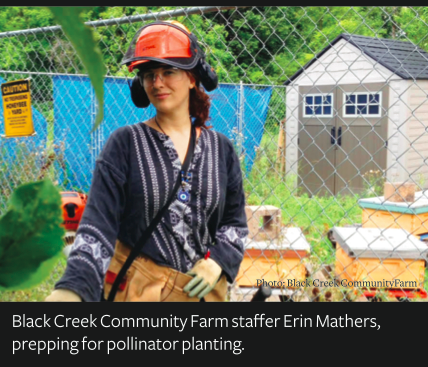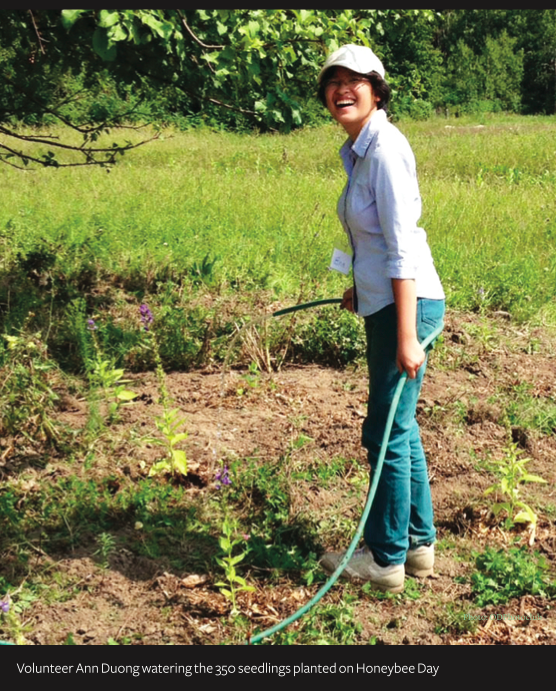By David Ros
When enjoying fresh fruits and vegetables, it may not be readily apparent to many, the critical role played by pollinator bees in bringing those foods to our tables.
Many of our most common food crops such as tomatoes, cucumbers and a wide variety of other fruits require pollinators such as bees to spread pollen from flower to flower of the same plant species in order for the fruit to grow.
However, the population of these small insects that are so crucial to the cultivation of much of the food we eat is under threat due to climate change and loss of habitat.
“The bee populations are dying off because of climate change, human interference, and as we keep expanding cities, we’re destroying some of the habitat,” said Verity Dimock, resource development coordinator for the Black Creek Community Farm. “It’s critical that we protect their hives, and with pollinators, it’s more about protecting their habitat.”
With this in mind, the Black Creek Community Farm held its annual Pollinator Bee Day event on Aug. 22 to bring awareness of this small, but important part of our ecosystem.
During the morning, members of the Toronto beekeepers cooperative helped volunteers to plant pollinator bee gardens in order to attract pollinator bees to help fertilize crops.
Volunteers cleared out brush and planted various pollinator friendly plants in order to increase the amount of pollinators at the farm.
“In some cases, without pollinators, you might not get any fruit growth,” Dimock said. “[With pollinators], you’re basically going to get a better harvest, you’re going to get more vegetables and fruits, you’re going to get better quality, they’re going to be larger in size, they’re going to be more nutritious and they’re going to be tastier.”
The event showcased the impact that both honeybees and pollinator bees have in fertilizing crops and in the afternoon, attendees were treated to a local honey tasting. The beekeepers also fielded questions from the public, showed the different goods and products that could be crafted from honey, and demonstrated how people could create pollinator gardens in their own back yards.
“More and more people are concerned about the pollinator population because they understand the big impact that it has on our food system,” Dimock said. “If you like to eat and you like to eat good food, there’s a good reason for you to try and protect bees and other pollinators.”
For more information on how to protect
pollinator bees email us at
info@downsviewadvocate.ca



